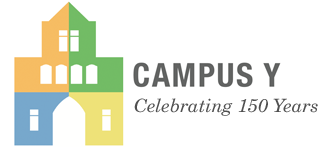The following blog was written by Crystal Yuille, a fourth-year in the Bonner Leaders Program at the Campus Y. Crystal works at SCALE (Student Coalition for Action in Literacy Education) as a Bonner.
by Crystal Yuille
Sometimes things just work out…
Last fall, I found myself dancing cha-cha with world acclaimed Cuban artist Danay Suarez in the School of Public Health. It was the day before she would perform in Memorial Hall, and it was only for a minute, but as I slowly caught the rhythm, I chuckled a little. It was serendipitous, it was fun, and I embraced it. After dancing and talking with her about her art and her home, I found myself yearning for the chance to go to Cuba.

Countless pages of books—fiction and nonfiction alike—influenced my desire to go. And with the smooth, legendary rhythms of Buena Vista Social Club to Queen Celia Cruz’s unapologetic anthem “La Negra Tiene Tumbao,” to the Orishas political rap stylings, I was enamored with the country.
I don’t mean to be sensationalist in writing about Cuba. Like all countries, there are good qualities, and there are bad. But there are a few countries in which I find a special spirituality in the traditions, the music, and overall culture. Cuba is one of them.

It’s gratitude more than anything.
In high school, when I was frustrated with the lack of African American representation in the books that we read or the history we were taught, I discovered Cuba’s Afro-Cuban presence. Celia Cruz helped me stay sane with songs like “La Vida Es Un Carnaval” and especially “La Negra Tiene Tumbao,” while Yerba Buena in praising the Guajira’s African features, helped me escape the Eurocentric norms surrounding me. The Afrocentric appreciation meant more to me than I can describe.
It stems from Cuba’s African links. As part of the transatlantic slave trade, a large number of enslaved Africans were forced to work in Cuban mines or on sugar plantations. As African-descendant Cubans integrated into society, many of the traditions that were brought over with them became integral to mainstream society. Music and dance, religion, even forms of speaking became accepted as part of the Cuban identity.
Still, we see that in a country where everyone is supposed to be equal under the state, black or Afro-Cubans are often left behind. While many Cubans proclaim Cuba to be a country free of racism, others cite the higher obstacles to education, jobs, property and other benefits, as proof of underlying racism in the society. It’s often subtle and based on systems of racial exclusion that are difficult to overturn. Some scholars have likened it to a sort of structural issue similar to that present in the U.S.

That being said, I’m beyond excited for the opportunity to embark on this trip to have those discussions. I can’t think of any occasion when I might be able to travel with African American professionals to Cuban cities, in order to engage with renowned Afro Cuban community leaders about issues like education, the economy, the history of slavery, and more. It’s about connecting and learning from people of the African diaspora. It feels like kinship.
It’s a once-in a lifetime opportunity, and it almost didn’t happen.
Firstly, just last year, U.S. citizens could barely travel to Cuba! (There were some ways to get there though.) Secondly, I heard about the trip just a couple of days before the Campus Y’s Global Engagement Fellowship deadline. Fortunately, Erin Krauss, the Y’s Global Civic Engagement Coordinator, embraced me when I found her during her lunch break and provided me with all of the information I needed. Similarly, the Director of the Cuba program spoke with me for what seemed like hours on the phone and managed to write an outstanding letter of recommendation with only two days notice. Every day, I’m beyond grateful for their kindness and generosity. It’s crazy to think about how everything is working out.
I plan to do a lot with the trip. As a Bonner Leader (it’s a Campus Y organization) I serve with nonprofit site called SCALE (Student Coalition for Action in Literacy Education). After the trip, my bosses and I will focus on a potential webinar that details Cuba’s national literacy campaign. I’m also hoping to lead a Bonner meeting that discusses international advocacy and provide content to various cultural sites.
In the days leading up to the trip, I’m becoming increasingly excited and I remain endlessly thankful.
It’s nice to say sometimes things just work out.

